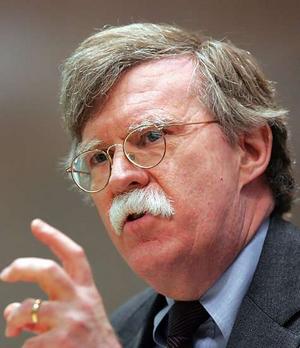Citing RAND Corporation political scientist Christopher S. Chivvis and Daveed Gartenstein-Ross’s testimony before the House Committee on Oversight, The National Interest‘s John Allen Gay asks “Did We Bomb Libya to Keep the Arab Spring Going?“
In addition to the exaggerated humanitarian justifications for intervening in Libya’s civil war, Chivvis claims the Obama administration thought “that decisive support for the revolution would vividly demonstrate that the United States supported the uprisings across the region…Not acting in Libya, in other words, would put the United States on the wrong side of history, encourage other Arab leaders to choose violent repression over peaceful reform…” Gartenstein-Ross made the same point in his testimony last week.
Gay correctly observes that this was tremendously naive on the part of the Obama administration. As we now know, and as Gay reminds us, the bombing campaign in Libya had numerous repercussions and unintended consequences, including destabilizing not just Libya but Egypt, Mali, Syria, Tunisia and beyond, bolstering al-Qaeda affiliated groups, and getting the U.S. Ambassador to Libya and three other Americans killed, among other things.
If the Obama administration really thought encouraging the Arab Spring and discouraging authoritarian crackdowns would be beneficial to U.S. interests, they were wrong and overly confident in their ability to actually achieve those missions. Gay argues that maintaining the “status quo” order and “preserving our position should be our highest goal,” not encouraging revolution across an entire region of strategic importance.
The error in this analysis is that it takes the Obama administration’s supposed motivations for intervening in Libya at face value. The Obama administration may have wanted to indicate their place on the “right side of history,” – they may have intended to give this impression – but it is pretty clear they did not intend for it to actually work.
The Obama administration certainly did not encourage the protest movement in Egypt, where it continued to back Mubarak as he slaughtered more than 900 people in the streets, only calling for him to step down when that inevitability had already become obvious and then immediately backing Mubarak’s henchman, Omar Suleiman, who would not have been a democratic improvement but definitely would have been a loyal servant to Washington. Even throughout Egypt’s several transitions since Mubarak’s fall, the Obama administration has sent money and weapons to whatever regime was in power – and every regime has used force against protesters.
Similarly, the Obama administration has continued to lend support to the brutal Sunni monarchy in Bahrain, which has spent several years now trying to suffocate one of the most promising pro-democracy movements in the entire Arab Spring. Obama said nothing – and, I would think, likely gave approval – for Saudi Arabia to move troops into Bahrain and impose martial law to stave off the progress of the civilian opposition.
Across the Arab world – in Egypt, the Gulf states, Iraq, and even Syria – the administration has been clear about its position: revolutionary change that overthrows obedient dictators is worse than continuing to support those dictators. Libya wasn’t an exception to this rule; it was more likely a propaganda tool to counter the perception that the reality inspires.
Of all the countries experiencing apparently pro-democracy Arab Spring protest movements, Libya was one of the least strategically important. Unlike Syria which is more strategically located, far more urban and densely populated, and much more dangerous given its ethnic and religious cleavages, Libya was doable. A relatively limited intervention could be waged at relatively low cost and the pay off would not be to encourage region-wide democratic revolutions (which would undoubtedly end in those countries adopting policies contrary to Washington’s dominion) but to counter the perception in the Arab-Muslim world that the U.S. is the source of their misery and the prop of their authoritarian overlords.
In a way, I’m giving a bit more credit to the administration than Gay is. I find it unsurprising that they are incompetent. But stupid enough to genuinely want to encourage Arab Spring protest movements? I doubt it.




 In a piece in the
In a piece in the  Rand Paul really rose to prominence following his
Rand Paul really rose to prominence following his